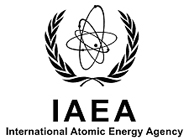IAEA's budget limit endangers its work, ElBaradei warns
 Vienna - International Atomic Energy Agency (IAEA) chief Mohamed Elbaradei warned Monday in Vienna that the agency's ability to carry out its core work was at risk unless funding was increased.
Vienna - International Atomic Energy Agency (IAEA) chief Mohamed Elbaradei warned Monday in Vienna that the agency's ability to carry out its core work was at risk unless funding was increased.
As member states of the Vienna-based agency have hardly raised its budget since the early 1980s, some areas of work, such as the prevention of nuclear terrorism, are being funded through special contributions by individual countries.
"It would be a tragedy of epic proportions if we fail to act until after a nuclear conflagration, accident or terrorist attack that could have been prevented," Director-General ElBaradei said at the annual IAEA general conference, which runs until Saturday.
Among the problem areas, ElBaradei mentioned that 90 per cent of the IAEA's nuclear security programme depended on voluntary funding, rather than on the regular budget.
The programme advises governments on how to prevent and respond to nuclear terrorism and was involved in security measures at the Beijing Olympics this summer.
The IAEA's inspectors, who are currently probing allegations about a secret military nuclear programme in Iran, are "increasingly overstretched," ElBaradei said.
The director general repeated his call on Tehran to be more transparent in order to clear the allegations.
"This will be good for Iran, good for the Middle East region and good for the world," he said.
Several countries, including European Union members and Israel, echoed the Director General's statements on Iran.
Without naming countries, the chief of the Israel Atomic Energy Commission not only called on Iran to cooperate with the IAEA, but also on Syria, where Israeli warplanes bombed an alleged secret nuclear reactor last year.
These countries should "comply with their obligations and commitments and to halt their military-oriented nuclear activities," Director General Shaul Chorev said.
Both Iran and Syria deny allegations that they are seeking nuclear weapons.
A commission of eminent persons completed a study in May, in which they called for a doubling of the IAEA's budget until 2020.
In 2008, the IAEA's regular budget amounted to 289 million euros (415 million dollars).
Diplomats have told the Deutsche Presse-Agentur dpa that several member states were critical of the report, as it proposed to expand, rather than streamline, the agency's activities.
When ElBaradei retires next November, his successor will have to deal with these budget constraints.
Both Japan and South Africa promoted their respective candidates for the post of Director Generals on Monday.
Japan's envoy Iwao Matsuda praised his country's UN Ambassador in Vienna, Yukiya Amano, for his experience in non-proliferation and nuclear energy matters.
South Africa's Energy Minister Buyelwa Sonjica said that her government's IAEA envoy Abdul Samad Minty was a pioneer in promoting the peaceful use of nuclear energy after the Apartheid regime's nuclear weapons programme was abandoned in the early 1990ies.
Minty's candidacy is endorsed by the 53 members of the African Union. (dpa)